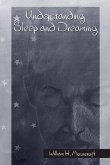Luciano L'Abate
Since its inception, psychology has worked to establish itself as a legitimate scientific endeavor. Countless research studies have tested numerous theories and therapies, determining what works and what doesn't, and building a vast store of empirical knowledge. Now a startling and provocative new volume suggests that the problem withthe evidence base is that it is not scientific enough-and that the major modes of therapy are on their way out.
In Clinical Psychology and Psychotherapy as a Science, Luciano L'Abate expands on his previously controversial ideas, taking to task the one-to-one, face-to-face, talking-cure paradigm that has been entrenched for over a century. Citing the rise of self-help manuals, workbooks, written interactive practice exercises, and websites, he predicts the continued ascendance of writing in communication and healing, and details the contributions of technology in creating less-invasive homework-based interventions.
These are presented as an efficient, cost-effective, and replicable alternative to traditional forms of therapy, and the author explains how their therapeutic gains can be achieved without sacrificing the therapeutic relationship. Included in the coverage are:
. The case for distance writing and computer conferences.
. Beyond reliability and validity: the quest for specificity.
. Stepped care research in clinical psychology and psychotherapy.
. Concreteness, or seven orphaned concepts in search of a theory.
.Toward a hierarchical personnel structure in clinical psychology and psychotherapy.
. Plus an appendix of supplemental workbooks for adults, children, adolescents, and families.
As with the author's other works, Clinical Psychology and Psychotherapy as a Science will spark debate and interest among researchers and clinical psychologists and psychotherapists.
Dieser Download kann aus rechtlichen Gründen nur mit Rechnungsadresse in A, B, BG, CY, CZ, D, DK, EW, E, FIN, F, GR, HR, H, IRL, I, LT, L, LR, M, NL, PL, P, R, S, SLO, SK ausgeliefert werden.
In its place, he recommends, nay, insists on, bibliotherapy, teletherapy, using modern technology such as the Internet and iPhone apps-anything but what most of us family therapists consider the bulwark of therapy" talk-based, face-to-face contact. In his favor, it must be acknowledged that conventional therapy is expensive and therefore not always available to those who are among the less affluent (the 99% ?).
But what about the subtleties of non-verbal behavior that we family therapists rely on to reach beyond the words themselves? "How are you doing?" we might begin a session. "Fine!" responds one of the clients, chin trembling, eyes filling with tears. What if this communication were limited to a written line on a computer screen or to a voice on our smart phone? 'Nuff said.
L'Abate's heart may be in the right place, but it's what's in his head that is difficult for many of us to accept. Yet, there is that lingering feeling that he may be on the right track. Seminal changes are not always obvious to those in the middle of the mix. Who would have thought-at the time of the change-that the clunky horseless carriage would lead to the automobile industry, or that the scratchy voice of Alexander Graham Bell on his first ever transmission would lead to the telephone industry, not to mention the Internet? Do we have a genius in ourmidst? Is L'Abate on to something here? This iconoclastic perspective deserves our consideration, no matter how high the price. Attention must be paid here!
David Ryback, Book Review Editor
American Journal of Family Therapy
...L'Abate passionately argues for a switch from the above traditional meetings, which lack sufficient theoretical underpinnings and research to support their efficacy, toward computer and Internet-based interventions, and fervently praises the usefulness and cost savings of workbooks, which he broadly defines as "programmed writing." L'Abate mentions throughout the book that his view is controversial, will likely make some readers angry, and will raise a few eyebrows, which it does . . . and he welcomes this. The book is organized into seven chapters and a hefty appendix section filled with exercises and handouts for a variety of problems (e.g., binge eating, divorce adjustment in children, among others). In each chapter, L'Abate describes his ideas and proposed solutions in tremendous detail, which is at times beneficial and other times somewhat difficult to follow. Clinical Psychology and Psychotherapy as a Science is a good starting point for a discussion on how to help move clinical psychology toward a more scientific practice, and further discussions, research, and implementation trials are certainly warranted.
Joy Chudzynski
PsycCRITIQUES
June 19, 2013, Vol. 58, Release 25, Article 5









